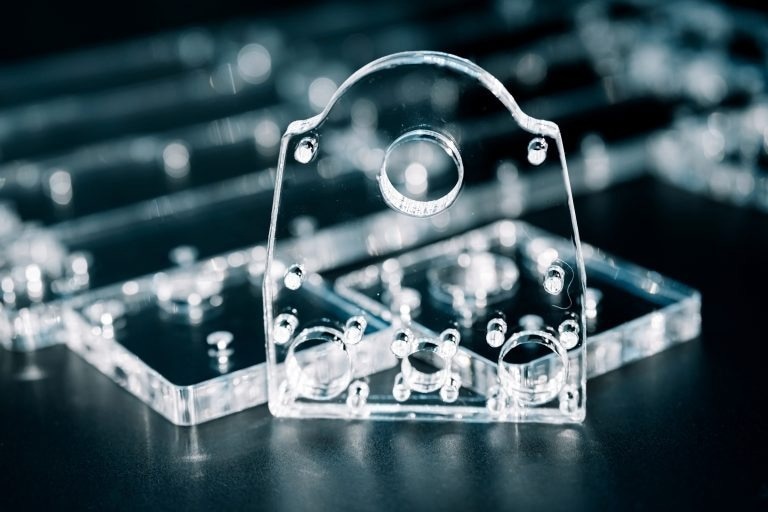A scientific discovery could change the way plastic is recycled, according to a team of researchers led by Brent Sumerlin, the George B. Butler Professor in the Department of Chemistry. The team has created a novel recycling process that promises to use less energy without compromising the quality of the plastic, thanks to their creative approach to dealing with polymers.
 The polymer Sumerlin’s team worked with was polymethyl methacrlyate (PMMA), more widely known as Plexiglass. Image Credit: Gustavo Raskosky/Rice University
The polymer Sumerlin’s team worked with was polymethyl methacrlyate (PMMA), more widely known as Plexiglass. Image Credit: Gustavo Raskosky/Rice University
It is well known that the United States and the Earth as a whole have a serious plastic problem. Only approximately 10% of all plastic is now recycled, despite a sharp increase in consumption over the previous few decades.
Our work is a response to the call to action proposed by the United Nations’ Sustainable Development Goals. New recycling strategies have become imperative to reduce the negative impact of plastic on the environment.
Brent Sumerlin, George B. Butler Professor, Department of Chemistry, University of Florida
Collection, sorting, and reprocessing are the three main steps in plastic recycling. Recyclables are collected by recycling collectors after being placed in specified containers, which is how consumer garbage is collected. The collected plastics are then organized by workers at recycling facilities to separate the non-plastic items and put similar plastics together for further processing.
Sumerlin’s team focused on the issues frequently faced at the last step of reprocessing, when the sorted plastics are generally divided into smaller pieces before being melted down and molded to produce new products. The polymer molecules that comprise these plastics are broken down into shorter fragments using this method, which frequently results in lower-quality recycled plastic.
Sumerlin’s team investigated an alternative strategy termed chemical recycling in place of this commercially prevalent thermal reprocessing. Their innovative but encouraging approach triggers depolymerization of the polymers, causing them to totally revert to the much smaller monomer molecules from which they were initially created.
The resultant monomer can then be utilized to create brand-new polymers with attributes similar to or superior to those of the plastics from which they were produced.
While this methodology has already been shown to be industrially viable, Sumerlin’s team of graduate students created a whole new process that drastically reduces the energy required for depolymerization. A team of researchers from Sumerlin’s lab led by graduate students James Young and Rhys Hughes carried out this experimental investigation.
Sumerlin concluded, “Not only does this allow recycling of plastics with less energy, but it also enables access to plastics of even better quality.”
Polymer research at UF has gotten a lot of attention and funding in recent years. Sumerlin and colleague Austin Evans were awarded a distinguished MURI Grant from the Department of Defense in April to further their study in this subject. These remarkable findings could just be the first steps toward realizing polymers’ full potential.
For the time being, owing to Sumerlin and his team’s efforts, the future of recycling is brimming with potential, promising a greener and more sustainable tomorrow.
Journal Reference:
Young, A. B., et al. (2023) Bulk depolymerization of poly (methyl methacrylate) via chain-end initiation for catalyst-free reversion to monomer. Chem doi:10.1016/j.chempr.2023.07.004